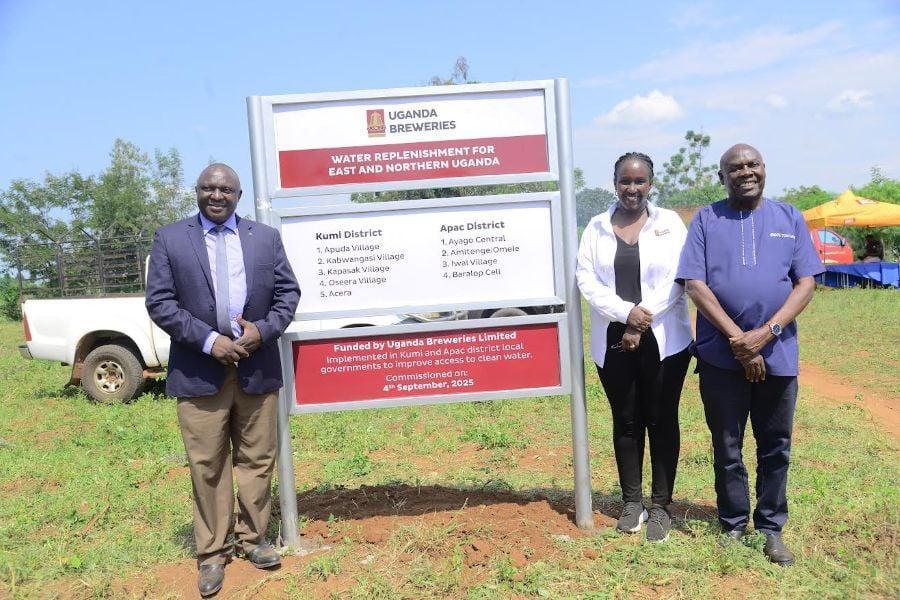Africa-Press – Uganda. Government has urged corporate companies to support national efforts in addressing water scarcity in rural communities by investing in water infrastructure in water-stressed regions.
Speaking at the commissioning of nine community boreholes in Kumi District, the State Minister for Energy, Engineer Oplot Okasai, emphasized the need for sustainable solutions such as improved groundwater management, infrastructure investment, and community-based water use initiatives.
The boreholes, constructed by Uganda Breweries, are expected to serve over 5,000 residents in Kumi and Apac Districts. In Kumi District, the five new boreholes will benefit the communities of Apuda, Kabwangasi, Kapasak, Oseera, and Acera villages. The four boreholes in Apac District were installed in Ayago Central, Amitenge/Omele, Iwal Village, and Baralop Cell.
“Addressing water scarcity is a critical measure in supporting economic development, poverty reduction, and public health. Achieving this requires collaborative efforts from national and local governments, the private sector, and community stakeholders,” said Minister Okasai, who also serves as the Member of Parliament for Kumi County.
He noted that before the intervention, many residents had to walk an average of 3.5 kilometers to access clean water. The newly commissioned boreholes will bring much-needed relief and convenience to the affected communities.
Sheila Sabune, Corporate Relations Director at Uganda Breweries, said the initiative falls under the company’s “Water for Life” program.
“Through our Water for Life program, we are not just fulfilling our commitment to replenish the water we use in our brewing process, but also addressing a fundamental human need that impacts education, health, and economic opportunities for entire communities,” she said.
Water scarcity has had significant negative effects in Kumi District, including increased school absenteeism and dropout rates due to the long distances children must walk for water. Additionally, contaminated water sources have contributed to a rise in waterborne diseases such as diarrhea, dysentery, and typhoid.
The government continues to call on other private sector players to join hands in addressing the country’s rural water challenges for sustainable community development.
For More News And Analysis About Uganda Follow Africa-Press






